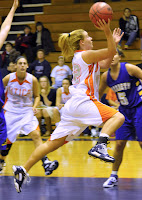
Came across an article in the Wall Street Journal about a team that views tough in a completely different way!
JOHANNESBURG, South Africa - Just before a recent game, South African rugby player Schalk Burger stated his belief that a rugby match isn’t a rugby match unless it “starts with a bang.” After less than a minute of play, Mr. Burger was penalized, for what looked like an attempt to gouge an opponent’s eyeballs.
Far from condemning the act that earned Mr. Burger an eight-week ban, South Africa’s head coach Peter de Villiers suggested that the offended player & coach “go to the nearest ballet shop, get some nice tutus and get a great dancing show going.”
Needless to say, the coach emphasizes tough-physical play. Just how tough are his players?
Andy MacDonald (now retired), was tracking a livestock-killing lion when the predator leapt on him, and he was left fighting off the feline with his bare hands.
“The lion bit off part of Andy’s ear and clawed his legs and lower body,” wrote South African rugby historian Paul Dobson. “Andy put one hand into the lion’s jaws and eventually the lion left him.” Mr. MacDonald received more than 400 stitches.
While some display their toughness by manhandling large beasts, others show their courage by staying on the field after sustaining serious injuries. André Joubert broke his hand in a tackle during the quarterfinals of the 1995 World Cup, yet went on to play two more matches -- this without taking any painkiller. Mr. Joubert said he suffered few long-term consequences other than a shortened finger.
I’d like to think our team is mentally stronger and physically tougher than most of our opponents… but this takes it to a whole new level!
4:13












































